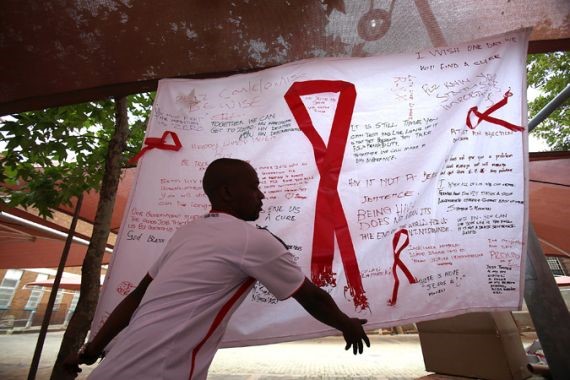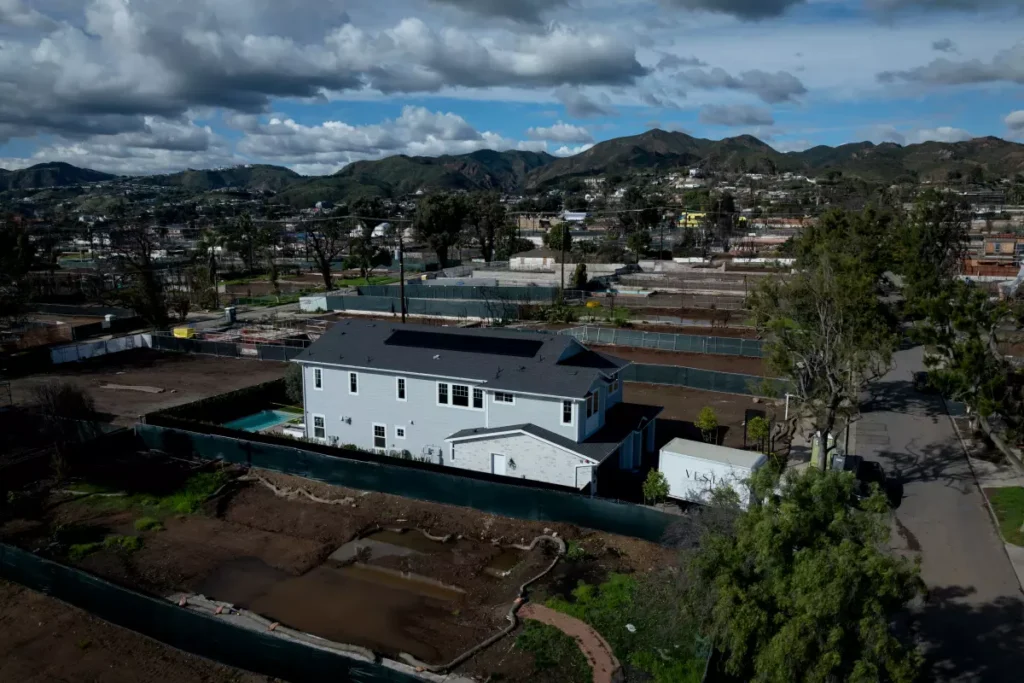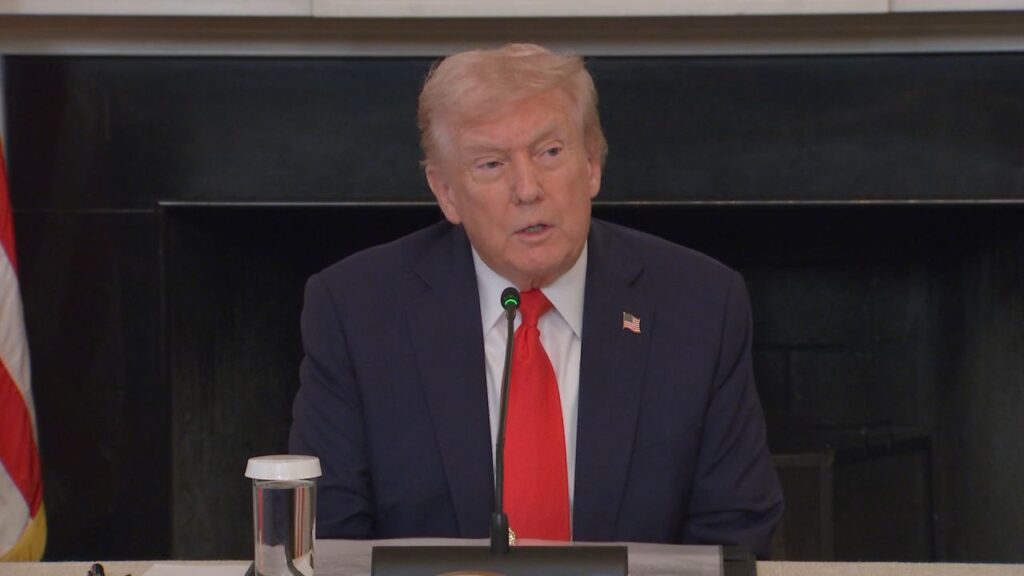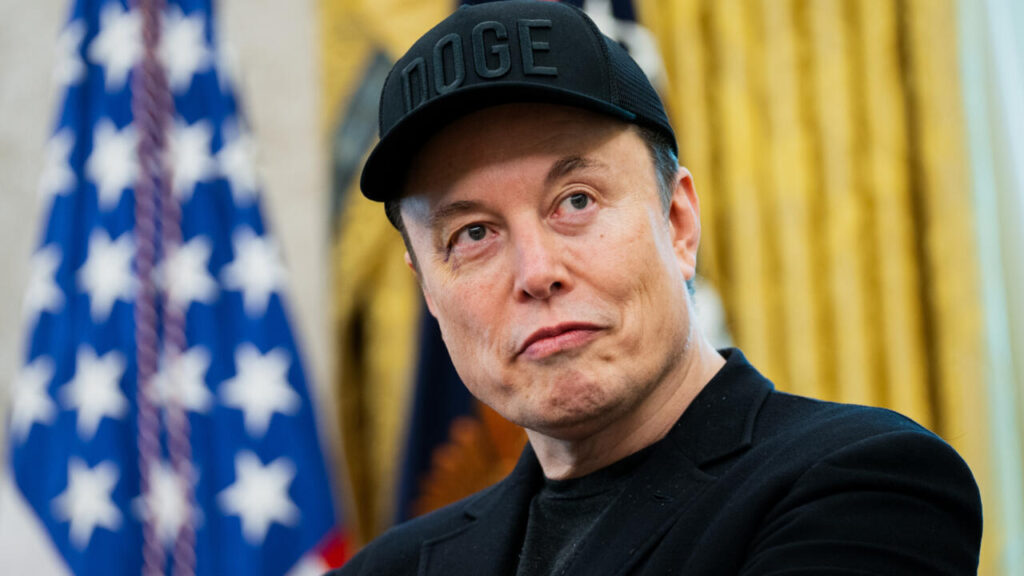
The global fight against HIV/AIDS faces a severe crisis as the United States suspends a significant portion of its foreign aid, a move that experts warn could lead to millions of preventable deaths in the coming years. According to the Joint United Nations Programme on HIV/AIDS (UNAIDS), the disruption in funding could result in 2,000 new infections per day and a dramatic increase in AIDS-related fatalities if alternative financial support is not secured.
The Impact of U.S. Funding Cuts
Since taking office, U.S. President Donald Trump placed nearly all U.S. foreign aid on hold, including funding for life-saving health initiatives such as the President’s Emergency Plan for AIDS Relief (PEPFAR). While the State Department initially assured that PEPFAR’s HIV programs would continue, the broader freeze on global health funding has had far-reaching consequences, particularly for clinics and healthcare workers dependent on U.S. financial support.
Winnie Byanyima, Executive Director of UNAIDS, emphasized the devastating effects of this abrupt funding cut, stating that thousands of healthcare workers have been laid off and numerous clinics have been forced to shut down. She warned that if U.S. funding from the United States Agency for International Development (USAID) is not reinstated or replaced by another source by April, the world could see an additional 6.3 million AIDS-related deaths over the next four years.
“This is not just a funding issue—it’s a matter of life and death,” Byanyima said during a press conference in Geneva. “We risk undoing decades of progress in the fight against HIV/AIDS, bringing us back to the devastating mortality rates of the 1990s and early 2000s.”
A Growing Global Health Emergency
UNAIDS reported approximately 600,000 AIDS-related deaths worldwide in 2023, a stark reminder that the epidemic is far from over. The organization relies heavily on contributions from donor nations, with the U.S. providing $50 million in core funding last year—accounting for 35% of UNAIDS’ total budget.
The Trump administration defended the funding freeze as part of its “America First” policy, aimed at prioritizing domestic interests. U.S. Secretary of State Marco Rubio has dismissed concerns that Washington is withdrawing from international aid altogether, stating that exemptions have been made for critical services. However, many global health organizations argue that these waivers are insufficient to mitigate the widespread damage caused by the pause in funding.
Consequences Beyond HIV/AIDS
The repercussions of the aid suspension extend beyond HIV/AIDS programs. Many clinics that provide HIV treatment also offer maternal healthcare, tuberculosis treatment, and malaria prevention. The closure of these facilities could lead to a resurgence of other infectious diseases and an overall decline in healthcare access for millions, particularly in low-income countries.
In addition to direct health consequences, the economic impact of the funding cuts is also significant. The layoffs of healthcare workers, coupled with reduced access to life-saving medications, threaten to destabilize healthcare systems in many developing nations. The long-term effects could hinder efforts to eradicate HIV/AIDS by the United Nations’ 2030 goal.
The Urgent Need for Alternative Funding
Global health experts and humanitarian organizations are calling on other donor nations to step in and fill the funding gap left by the U.S. freeze. While some European countries and private donors have increased their contributions, it is unclear whether their support will be sufficient to prevent the worst-case scenario outlined by UNAIDS.
“We need an immediate response from the global community,” Byanyima urged. “This is a fight we can still win, but only if world leaders recognize the urgency of the situation and act before it is too late.”
With the April deadline looming, the world is watching to see whether alternative funding sources can be secured—or if the progress made in combating HIV/AIDS over the past decades will be reversed. If the funding shortfall persists, the implications could be catastrophic, particularly for regions heavily dependent on U.S. aid, such as sub-Saharan Africa, where access to antiretroviral therapy has been largely sustained by international assistance.
The international community must act swiftly, not only to prevent a resurgence of HIV/AIDS but also to protect the advancements made in global health infrastructure over the past two decades. Nonprofit organizations, private philanthropists, and governments must work together to establish a sustainable funding mechanism that does not rely on the shifting priorities of any single administration. Additionally, affected nations may need to explore new partnerships and innovative financing strategies, such as increased domestic healthcare investment and the expansion of public-private initiatives.
The decision to cut foreign aid has sparked a broader debate about the responsibility of wealthier nations in global health crises. While some argue that the U.S. should focus on domestic priorities, others point out that pandemics and public health emergencies know no borders. The failure to address an HIV/AIDS resurgence now could have long-term consequences, including an increased burden on global healthcare systems, economic instability, and the risk of new, more resistant strains of the virus emerging.
As the situation unfolds, the question remains: Will world leaders step up to prevent millions of unnecessary deaths, or will history repeat itself, forcing another generation to suffer the consequences of inaction?

Sana A. is a medical student, writer, and journalist with a strong passion for healthcare reporting and a deep commitment to covering current events across the United States. As a contributor to Los Angeles Headlines, she focuses specifically on medical news, health policy, and emerging trends in the healthcare industry.






